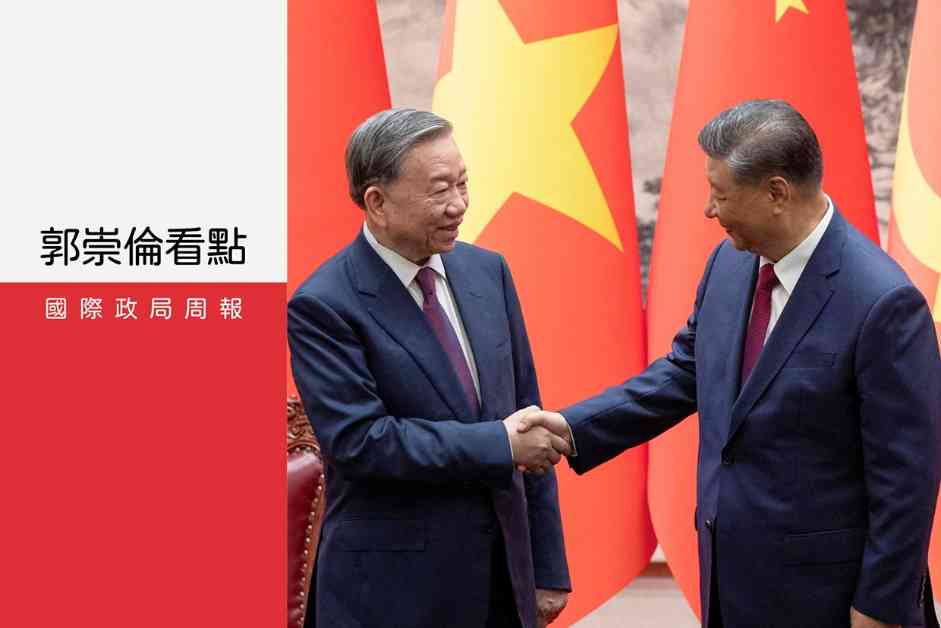Sino-Vietnamese relations have historically been less tense than Sino-Philippine relations when it comes to disputes over the South China Sea. This phenomenon can be attributed to a combination of historical, geopolitical, and economic factors that have shaped the dynamics between these countries.
Historical Context
Vietnam and China share a long history of interactions, including periods of conflict and cooperation. The two countries have a complex relationship that dates back centuries, with Vietnam often being influenced by Chinese culture, language, and governance systems. Despite occasional tensions, Vietnam and China have managed to maintain a relatively stable relationship compared to other countries in the region.
On the other hand, the Philippines has a more recent history of colonization and occupation by Western powers, which has shaped its foreign policy approach towards China. The Philippines has historically relied on the United States for security and defense, leading to a more confrontational stance towards China in the South China Sea disputes.
Geopolitical Considerations
Vietnam and the Philippines have different geopolitical considerations when it comes to their relations with China. Vietnam shares a land border with China, which has led to a pragmatic approach to managing their disputes in the South China Sea. Vietnam has sought to balance its economic interests with China while also asserting its territorial claims in the region.
On the other hand, the Philippines is a maritime nation with no direct land border with China. This has led to a more assertive stance by the Philippines in defending its claims in the South China Sea, particularly with the support of the United States. The Philippines has sought to leverage its strategic location and alliance with the US to counter China’s growing influence in the region.
Economic Interests
Economic interests also play a significant role in shaping Sino-Vietnamese and Sino-Philippine relations. Vietnam and China have deep economic ties, with China being Vietnam’s largest trading partner and a major investor in the country. This economic interdependence has helped to mitigate tensions between the two countries, as both sides have a vested interest in maintaining stable relations for mutual benefit.
In contrast, the Philippines has a more limited economic relationship with China, with the US being its largest trading partner and investor. This has allowed the Philippines to adopt a more confrontational stance towards China in the South China Sea disputes, as it is less reliant on China economically compared to Vietnam.
Overall, the differences in historical context, geopolitical considerations, and economic interests have contributed to the varying degrees of tension in Sino-Vietnamese and Sino-Philippine relations over the South China Sea disputes. While both countries have legitimate claims in the region, their approaches to managing these disputes differ based on their unique circumstances and strategic calculations.












